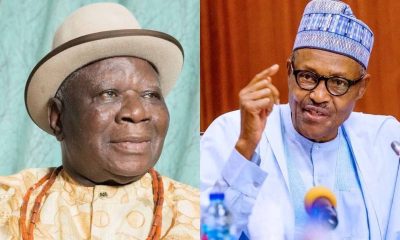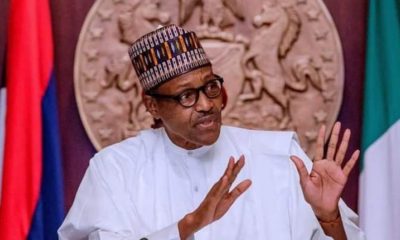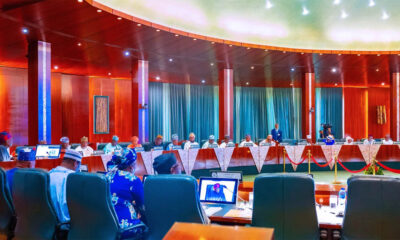Business
It’s difficult to fake new naira notes, says Buhari

The new naira notes have been fortified with security features that will make them difficult for currency counterfeiters to fake, President Muhammadu Buhari said yesterday.
Unveiling the new N1000, N500 and N200 bills shortly before the weekly Federal Executive Council (FEC) meeting at the Presidential Villa, Abuja, the President gave reasons for his approval.
He said besides the fact that the exercise was overdue, there was the need to take control of the currency in circulation.
The President, according to a statement by his Special Adviser on Media and Publicity, Mr. Femi Adesina, expressed delight that the redesigned notes were produced locally by the Nigerian Security Printing and Minting (NSPM) Plc.
He added that the new notes would help the Central Bank of Nigeria (CBN) design and implement better monetary policy objectives.
READ ALSO:
- Nasarawa police invade baby factory, rescue victims, arrest suspects
- Spain defeats Costa Rica 7-0 as they kick off World Cup campaign
- Ikirun mayhem: How deceased was killed, Eyewitness narrates
The President, who commended the CBN Governor, Godwin Emefiele, and his deputies for the initiative, also lauded the NSPM Plc management “for working tirelessly with the apex bank to make the currency redesign a reality, and for printing the new naira notes within a comparatively short time.”
Acknowledging that international best practice requires central banks and national authorities to issue new or redesigned currency notes between five and eight years, Buhari noted that it is now almost 20 years since the last major redesign of the local currency was done.
He said: “This implies that the Naira is long overdue to wear a new look. A cycle of note redesign is generally aimed at achieving specific objectives, including, but not limited to: improving security of notes, mitigating counterfeiting, preserving the collective national heritage, controlling currency in circulation, and reducing the overall cost of currency management.
“As is known, our local laws – specifically the CBN Act of 2007 – grants the apex the power to issue and redesign the naira.
“In line with this power, the Central Bank Governor approached me earlier in this year to seek my permission to embark on a currency redesign project. I considered all the facts and reasons presented before me by the central bank.
“While this may not be apparent to many Nigerians, only 4 out of the 54 African countries print their currencies in their countries, and Nigeria is one. Hence, a majority of African countries print their currencies abroad and import them the way we import other goods.
READ ALSO:
- Japan shock Germany 2-1 in second 2022 FIFA World Cup
- Labour party campaign plane to Ibadan grounded
- Auto industry set to bounce back, NADDC DG says review bill ready (+ photos)
- Fuel Scarcity Spreads Across Lagos
“That is why it is with immense pride that I announce to you that these redesigned currencies are locally produced right here in NSPM) Plc,’’ he said.
Emefiele thanked the President for his unwavering support for the redesign and distribution of the new notes, which, he said, will control inflation, make policies more effective, ensure financial inclusion and fight corruption.
He also noted that by international best practice, the redesign of notes should be every five to eight years, and the currency in circulation had been in usage for 19 years, with spiraling challenges on the economy, especially on security and counterfeiting.
Appreciating the President for his insistence that the initial notes must be designed and produced locally, Emefiele said it was a renewal of confidence in the NSPM Plc.
He said: “Mr. President, only a President of your esteemed and incorruptible stature could have done what we are witnessing today.”
The CBN boss listed the benefits of the redesigned naira notes to include enhanced security, greater durability, attractiveness and promotion of rich cultural heritage.
Benefits of the new bills
• Control of inflation
• Bringing hoarded cash back into banking system
• Strengthen monetary policy
• Increased financial inclusion
• Encouraging cashless economy
• Promoting anti-corruption fight
Business
Nigeria’s foreign reserves records marginal increase, now $40.88bn – Cardoso
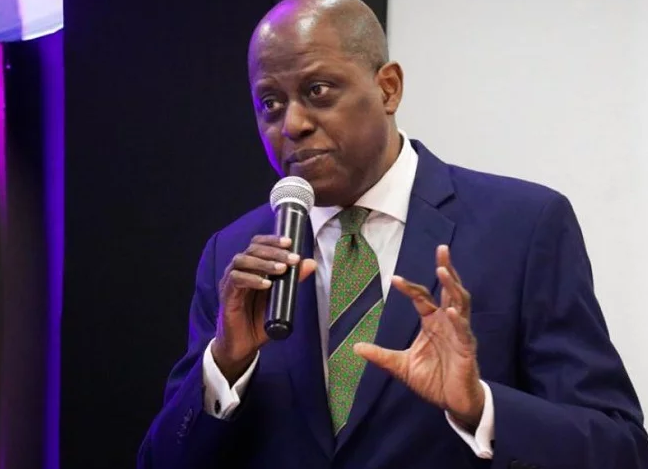
Nigeria’s foreign reserves records marginal increase, now $40.88bn – Cardoso
Nigeria’s foreign reserves rose to $40.88 billion as of November 21, the Governor of the Central Bank of Nigeria (CBN), Olayemi Cardoso, has said.
Cardoso disclosed this on Tuesday at a press conference after the Monetary Policy Committee’s 298th meeting in Abuja.
He said the external reserves grew from $40.06 billion at the end of October to $40.88 billion in November.
The amount represents an increase of $82 million or 2.05 per cent in 21 days.
“The external reserves rose marginally to 40.88 billion as of 21 November 2024, from 40.06 billion at the end of October 2024, available to finance 17 months of imports,” he said.
However, from the apex bank’s website, the increase in Nigeria’s foreign reserves showed $40.27 billion on November 22.
Cardoso also said, “The process of getting us where we are in terms of reserves has been a long one”.
“It is a clear indication that the policies we have put in place are certainly yielding fruits,” he added.
“However, and it’s very important to make a distinction here and to reiterate the fact that reserves are there for a multiplicity of different purposes, not least of which is to create buffers in the event of unanticipated shocks.
“So they are not there to simply whittle away. They are there to be used to more or less defend yourself where that becomes necessary
“And when we talk about shocks that are not anticipated, I think we can see how the global economies are.”
Cardoso also said the bank would continue to intensify efforts to stabilise the currency and prices.
The CBN governor said, “The currency has been stable compared to what it was in June”.
But he said for the value of the country’s currency to be stable, there must be increased exports and diversification of the economy.
Cardoso said diaspora remittance had increased due to policies put in place.
He commended those in the diaspora for helping the country accomplish over $600 million in remittances.
Business
Naira rises to N1,755/$ in parallel market

Naira rises to N1,755/$ in parallel market
The Naira yesterday appreciated to N1,755 per dollar in the parallel market from N1,770 per dollar on Monday.
Similarly, the Naira appreciated to N1,659.44 per dollar in the Nigerian Autonomous Foreign Exchange Market, NAFEM.
Data from FMDQ showed that the indicative exchange rate for NAFEM fell to N1,659.44 per dollar from N1,675.62 per dollar on Monday, indicating N16.18 appreciation for the naira. The volume of dollars traded (turnover) increased by 219.5 percent to $425.98 million from $108.79 million traded on Monday.
READ ALSO:
- Nigeria Customs returns 21 stolen luxury vehicles to Canada
- Pro-Wike Rivers lawmakers move to prevent probe of FCT minister tenure as governor
- Bianca raises hope Tinubu will free Nnamdi Kanu to restore peace in South-East
Consequently, the margin between the parallel market and NAFEM rate narrowed to N95.56 per dollar from N117.38 per dollar on Monday.
Naira rises to N1,755/$ in parallel market
Business
PH refinery to blend 1.4-million litre petrol daily – NNPC

PH refinery to blend 1.4-million litre petrol daily – NNPC
Rehabilitated old Port Harcourt refinery is currently operating at 70 per cent of its installed capacity, the Nigerian National Petroleum Company Limited has said.
The Port Harcourt Refining Company (PHRC) operates two refineries: the old refinery with a capacity of 60,000 barrels per stream day (bpsd) and a new refinery with an installed capacity of 150,000 bpsd.
The NNPCL in a statement on Tuesday, said it planned to increase the operation to 90 per cent of the refinery’s capacity.
“The Board and Management of the Nigerian National Petroleum Company Limited (NNPC Ltd) express heartfelt appreciation to Nigerians for their support and excitement over the safe and successful restart of the 60,000 barrels-per-day Old Port Harcourt Refinery,” the statement reads.
“This achievement marks a significant step forward after years of operational challenges and underperformance.
“We are, however, aware of unfounded claims by certain individuals suggesting that the refinery is not producing products. For clarity, the Old Port Harcourt Refinery is currently operating at 70% of its installed capacity, with plans to ramp up to 90%.”
According to NNPC, the refinery has commenced production of daily outputs of straight-run petrol (naphtha), which is blended into 1.4 million litres of petrol.
The national oil company said the refinery has also started producing 900,000 litres of kerosene per day and 1.5 million litres per day of diesel.
The NNPC said 2.1 million litres daily volume of low-pour fuel oil (LPFO) would also be produced at the refinery, adding that additional volumes of liquefied petroleum gas (LPG) will be refined at the plant.
“It is worth noting that the refinery incorporates crack C5, a blending component from our sister company, Indorama Petrochemicals (formerly Eleme Petrochemicals), to produce gasoline that meets required specifications,” NNPC said.
“Blending is a standard practice in refineries globally, as no single unit can produce gasoline that fully complies with any country’s standards without such processes.”
Additionally, the NNPC said it has made substantial progress on the new Port Harcourt refinery, “which will begin operations soon without prior announcements”.
“We urge Nigerians to focus on the remarkable achievements being realized under the able and progressive leadership of President Bola Tinubu and to support efforts aimed at delivering more dividends to the nation,” the energy firm said.
According to the statement, malicious attacks on “clear progress” only undermine the “significant strides made by NNPC Ltd and the country”.
-

 metro24 hours ago
metro24 hours agoBREAKING: Port Harcourt refinery begins operation
-

 Business3 days ago
Business3 days agoJust in: Dangote refinery reduces petrol price for marketers
-

 metro2 days ago
metro2 days ago40-foot container falls on car in Lagos
-
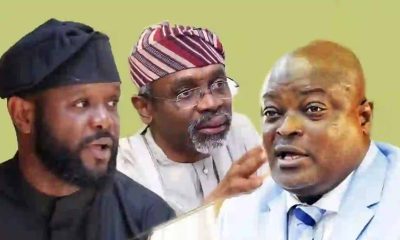
 Politics3 days ago
Politics3 days ago2027: Lagos Speaker, Obasa joins gov race, may battle Seyi Tinubu, others
-

 Politics2 days ago
Politics2 days agoLagos 2027: Seyi Tinubu campaign team releases his life documentary
-

 International2 days ago
International2 days agoTrump to sack 15,000 transgender officers from U.S. military: Report
-

 Education16 hours ago
Education16 hours agoUS University opens 2025 scholarships for international students
-

 Entertainment2 days ago
Entertainment2 days agoPolygamy best form of marriage for Africa – Okey Bakassi

